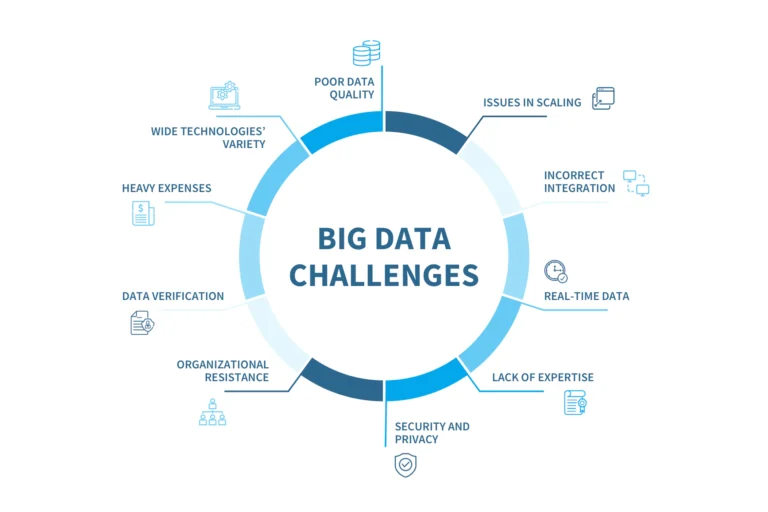What Do You Need To Study Cyber Security?
Cyber security is a growing field of technology that is becoming increasingly important in the modern world. It is the practice of protecting networks, data, and systems from malicious attack. In order to be successful in this field, one must have a comprehensive understanding of a variety of topics. This includes topics such as computer networking, programming, cryptography, computer forensics, risk management, and information security. It is also important to have basic knowledge of subjects like mathematics and statistics. To become a successful cyber security professional, one must have the skillset to identify, evaluate, and mitigate possible security risks. Additionally, the ability to develop and implement security policies and procedures is essential. Lastly, having experience in the field is highly valuable and can be gained through internships and certifications.
Reasons for Studying Cyber Security
As the world becomes increasingly digital, cyber security is becoming an increasingly important topic. With the rise of technology, cyber-attacks have become more common, making cyber security an important issue to understand. It’s no wonder why many are now turning to career paths in cyber security. But what do you need to study to become a successful cyber security expert?
To start, cyber security requires a strong understanding of computer networks and computing systems. It is important to have a good grasp of computer programming languages and to understand the underlying technology of computers. Additionally, those wanting to pursue a career in cyber security should have a strong understanding of cryptography, or the science of encrypting data. Cryptography is essential for protecting a network from cyber-attacks.
Another important component of studying cyber security is understanding the different types of cyber-attacks. It is important to be aware of the different techniques attackers use to gain access to computers and networks. Knowing the different attack vectors can help cyber security experts protect their systems and networks from attack.
Finally, studying cyber security requires a strong understanding of digital forensics. Digital forensics is the process of collecting and analyzing digital evidence from a computer or network. It is important to understand how to collect evidence and how to properly store and analyze the evidence.
These are just some of the things you need to study to become a successful cyber security expert. With the right knowledge and experience, you can make a successful career in cyber security and help protect the world from cyber-attacks.
Essential Cyber Security Knowledge
Cyber security has become an essential field of study due to the increasing risk of cyber-attacks and cyber-crime around the world. With the rise of the internet and the increasing sophistication of cyber criminals, it is essential for individuals and businesses to ensure their systems are secure from malicious actors. To do this, they must understand the fundamentals of cyber security, so here is a brief overview of the knowledge you need to study cyber security.
First and foremost, it is essential to have a basic understanding of computer systems and networks. This includes understanding how computers and networks communicate, as well as the different protocols used to secure them. Additionally, it is important to understand the different types of cyber threats and how they can be identified and prevented from compromising a system.
Furthermore, it is important to understand the basics of cryptography, which is the practice of keeping data secure by using advanced mathematical algorithms. Cryptography is used in a variety of ways to secure data, such as encrypting data, digitally signing documents, and authenticating users.
Finally, knowledge of the legal aspects of cyber security is essential. This includes understanding the laws that govern the use of data and the penalties for illegal activities. Additionally, it is important to understand the ethical implications of cyber security and the responsibility of organizations to protect the data they store.
These are just a few of the topics that should be studied in order to have a comprehensive understanding of cyber security. With the right knowledge, you can help protect yourself, your business, and the world from the threat of cyber-attacks.
Types of Cyber Security Degrees and Certifications
Cyber security is an ever-evolving field, and it’s important that professionals stay abreast of the latest technologies and techniques. One way to do that is by earning a degree or certification in the field. Depending on your goals, there are a variety of degrees and certifications to choose from.
For those just starting out, an Associate’s degree in cyber security can be a great way to begin a career in the field. These two-year programs typically cover the basics of cyber security, such as network security, operating systems, cryptography, and information security. They also provide a good foundation for those interested in pursuing higher-level degrees.
Those with experience in the field may want to consider earning a Bachelor’s degree in cyber security. These four-year programs delve deeper into the field and cover topics such as data protection, system security, risk management, and secure coding. They also provide more career options than an Associate’s degree, such as system administration or security analysis.
For professionals looking to advance their career, a Master’s degree in cyber security can be a great option. These programs provide a more advanced education, covering topics such as ethical hacking, digital forensics, network security, and cyber law. They also prepare students for management and leadership positions.
Finally, for those who are already in the field, there are a variety of certifications available that can help demonstrate expertise in a particular area of cyber security. These certifications cover topics such as security engineering, security architecture, and security operations. They are also a good way to show employers that you are up-to-date on the latest technologies and trends.
Whether you’re just starting out or already have experience in the field, there are a variety of cyber security degrees and certifications available to help you advance your career. Taking the time to research your options and find the right program for you can be a great investment in your future.
Cyber Security Career Paths
The field of cyber security is a rapidly growing one, and it is becoming increasingly important for individuals to understand the various career paths available to them. Cyber security professionals are responsible for protecting the digital assets of organizations and individuals from malicious online threats. There are many different cyber security career paths that individuals can choose from, ranging from network security to software development.
Network security focuses on protecting networks, computers, and data from unauthorized access and malicious attacks. Network security professionals work to identify security vulnerabilities and create strategies to protect systems from malicious attacks. Software development focuses on creating secure software applications in order to protect data and systems from malicious threats.
Another key area of cyber security is digital forensics, which involves the collection and analysis of digital evidence in order to identify suspects of cybercrime. Additionally, malware and virus analysts are responsible for analyzing and understanding the behavior of malicious software in order to protect systems from being compromised.
The field of cyber security is an ever-evolving one, and it is important for individuals to stay up to date on the latest trends and best practices. In order to pursue a career in cyber security, individuals should possess strong technical skills, an understanding of cyber security principles, and a willingness to continue learning new techniques. Cyber security is a rewarding and lucrative career path for those who are willing to put in the effort.
Cyber Security Job Market
As the demand for cyber security professionals grows, the job market for these experts is becoming more competitive. With an increasing number of organizations investing heavily in cyber security solutions, there is a huge need for qualified professionals who understand the complexities of the field. To be successful in the job market, individuals must be well-versed in the different aspects of cyber security. This includes understanding the technical aspects such as network security, malware analysis, and cryptography, as well as the legal and policy aspects such as data privacy and cyber law.
To gain the necessary skills, individuals must pursue the appropriate educational path. A degree in computer science or related field is an ideal choice for those wanting to pursue a career in cyber security. However, a degree is not a requirement; many employers accept certifications such as Certified Ethical Hacker (CEH) and Certified Information Systems Security Professional (CISSP). Furthermore, it is important to stay up to date with the latest technologies and trends in the field. This can be done through online courses, attending conferences, and staying active on social media.
By studying cyber security and developing the necessary skills, individuals can be well-positioned to take advantage of the growing job market. They will be ready to work in a wide variety of roles, from security analysts to cybersecurity consultants. With the right education and experience, individuals can take their cyber security career to the next level.
Resources for Learning Cyber Security
Cyber security is a fast-growing field of technology with a high demand for skilled professionals. With a vast amount of information available on the subject, it can be difficult to decide where to begin. Fortunately, there are a variety of resources available to those looking to learn more about cyber security, from online courses to professional certifications. With the right resources, you can become an expert in cyber security in no time.
To get started, there are several online courses available to learn the basics of cyber security. These courses provide an in-depth look at the different aspects of cyber security, from concepts such as authentication and cryptography to network security and malware. You can also find courses that focus on specific areas such as penetration testing and ethical hacking.
In addition to online courses, there are also certifications available for those looking to take their cyber security knowledge to the next level. Obtaining a professional certification can open up more job opportunities and help demonstrate your expertise in the field. Some of the most popular certifications include CompTIA Security+, Certified Information Systems Security Professional (CISSP), and Certified Ethical Hacker (CEH).
For those looking to stay up-to-date on the latest developments in cyber security, there are a variety of online resources available, including blogs and websites. These resources provide an insider’s look at the industry and can help you stay on top of the latest trends and best practices. Additionally, attending conferences and seminars can be a great way to network and stay up-to-date with the latest industry developments.
Overall, there is no shortage of resources available to those looking to learn more about cyber security. With the right online courses, certifications, and resources, you can become an expert in cyber security in no time.
FAQs About the What Do You Need To Study Cyber Security?
1. What qualifications do I need to study cyber security?
A: Generally, you need to have a bachelor’s degree in computer science, information technology, or a related field. Some employers may also require cyber security certifications or other specialized qualifications.
2. What type of skills do I need to study cyber security?
A: You need to have strong problem-solving skills, critical thinking skills, excellent communication skills, and a thorough understanding of computer networks and systems. You will also need to be comfortable with working with various software and hardware tools.
3. What type of career opportunities exist in cyber security?
A: Cyber security professionals are in high demand in almost all industries, from finance and healthcare to government and education. Popular career paths include security analyst, security engineer, security consultant, and Chief Information Security Officer (CISO).
Conclusion
To study cyber security successfully, you need a combination of technical expertise, problem-solving skills, and knowledge of security protocols and procedures. You should have a good understanding of computer networks, operating systems, data structures, cryptography, and computer programming. You should also have the ability to recognize and respond to security threats, as well as an understanding of the legal and ethical implications of cyber security. Ultimately, you need a passion for learning and a dedication to keeping up with the rapidly changing world of cyber security.



